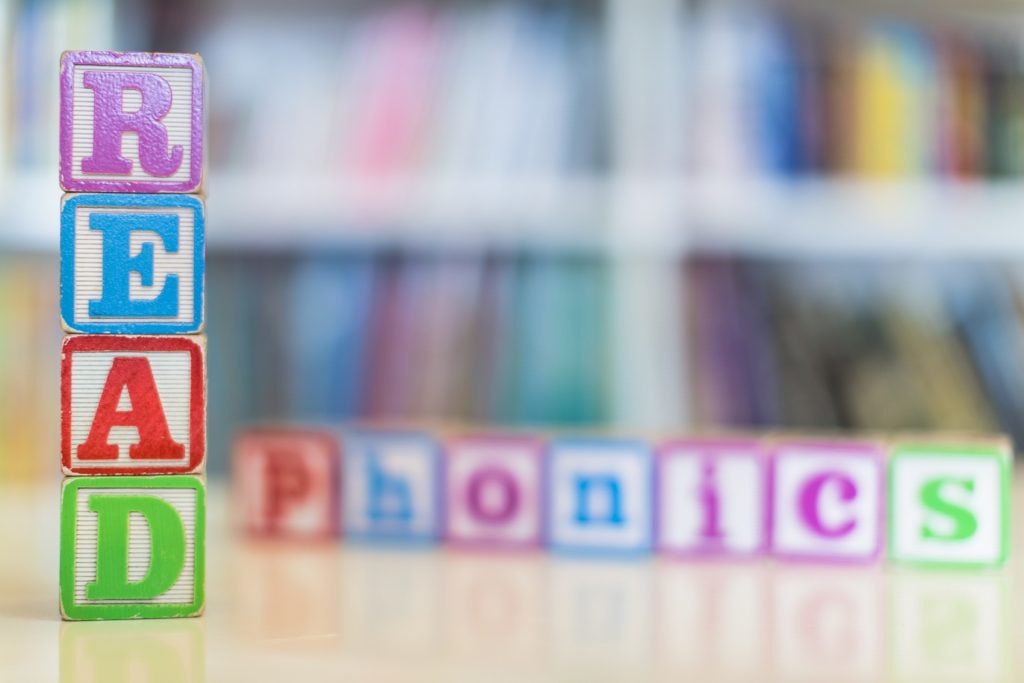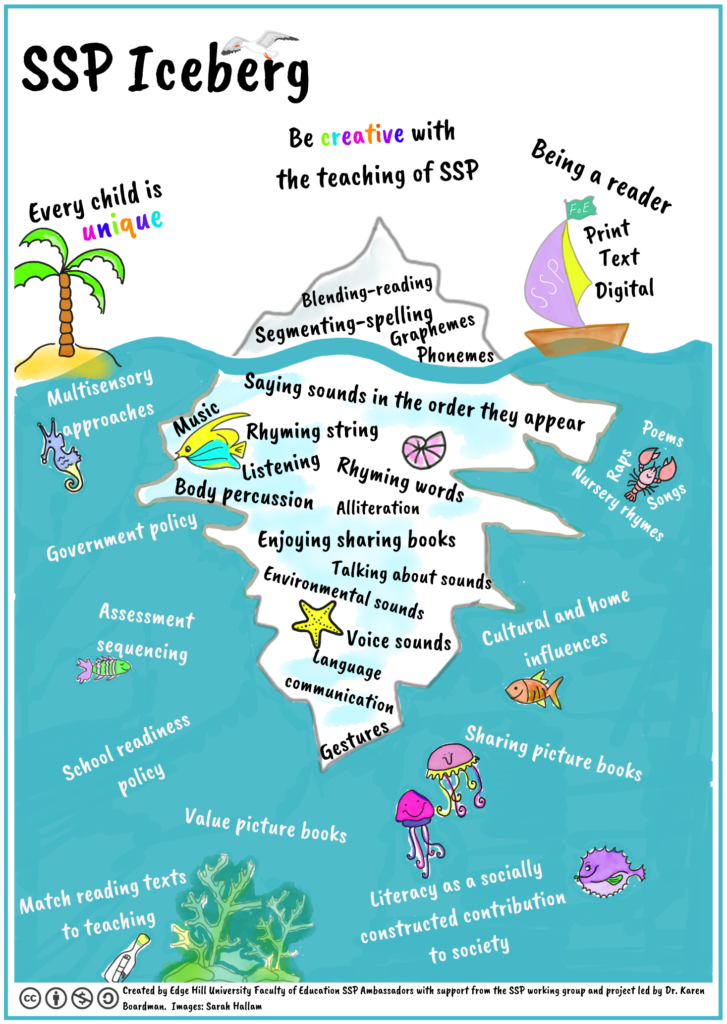Dr Karen Boardman

As I respond to yet another message on social media about why I am suddenly ‘crossing bridges’ from early reading advocacy to the teaching of Systematic Synthetic Phonics (SSP), I am wondering why I feel the need to explain my position yet again.
Firstly, it is not either/or – it is both. I am a strong advocate for early reading for under-fives and passionate about children reading in whatever format – print, digital, imagery; there is no ambiguity here! I am a supporter of all proposals that encourage and enable children as ‘readers’ in the widest possible sense.
However, supporting SSP is not really a choice I have, given the DfE ‘Core Content Framework’ 2019 and Ofsted, ‘Initial Teacher Education (ITE) Inspection Framework and Handbook’ 2021, and ‘The Reading Framework: teaching the foundations of literacy’ (DfE, 2021) emphasise the prominence of SSP teaching to support reading.
Intrinsically, these documents outline longstanding government policy focus on teaching SSP as the prime approach to teaching reading in schools. Therefore, as a researcher and strong advocate for ensuring that our trainee teachers are well-prepared in their roles in schools, it is a fundamental aspect of my role. I must navigate and negotiate the complex field of SSP to support trainee teachers to ensure confidence and competence in teaching SSP in schools.
To that end, it is critical that I support all our students and especially trainee teachers who will be working in Early Childhood Education and Care (ECEC) settings and primary schools. To engage, enthuse and embed them in the principles of early reading. It is equally important that I support trainee teachers with their understanding of the importance of teaching Systematic Synthetic Phonics (SSP) from Reception upwards in schools.
So we have put in place an exciting Systematic Synthetic Phonics Student Ambassador (SSPSA) initiative this year in the Faculty of Education. This encourages peer-to-peer support for trainee teachers teaching SSP. Our Student Ambassadors share ideas to support each other on social media platforms, Jam boards and in-person drop-in sessions. This helps to make SSP less daunting for trainee teachers whilst learning from each other as a Faculty of Education SSP Phonics ‘community’. This is certainly tricky terrain.
Arising from this, we have produced an ‘SSP Iceberg’ infographic to demonstrate the competitivity of reading for trainee teachers.

I will continue to collaborate and cross those tricky ‘bridges’ to do everything I can to ensure that early reading and phonics has the prominence it deserves to encourage young children to read.
In addition, I will continue to emphasise that we also need to listen to our children and have their voices and choices heard within early reading policy and provision, in the same way that we work collaboratively with trainee teachers and our partnership schools to raise the profile of SSP.
We hope that you find the ‘iceberg’ useful.
Karen Boardman is the Head of Department for Early Years Education in the Faculty of Education at Edge Hill University. @KarenMBoardman @FoEPhonics
